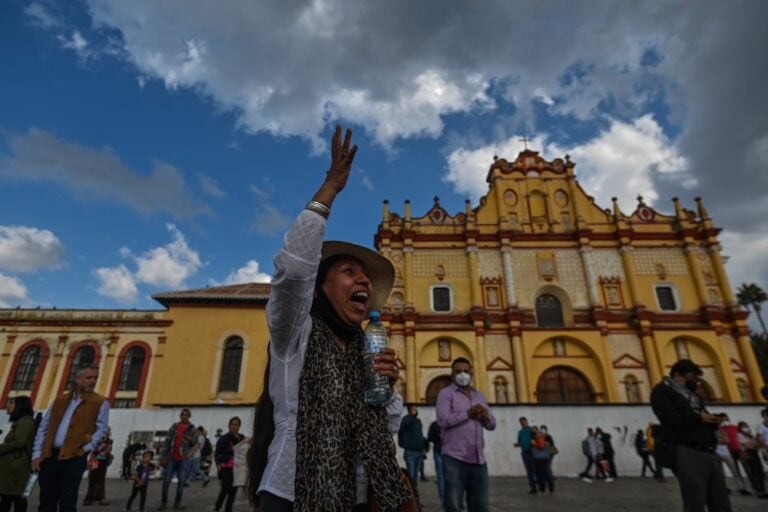The court deemed that "Proceso" was simply responding to society's legitimate interest to receive certain information about the former first lady.
(CEPET/IFEX) – On 7 October 2009, the Mexican Supreme Court (Suprema Corte de Justicia de la Nación, SCJN) cleared the political weekly “Proceso” of charges of “moral damages”, which were filed in April 2005 by the former first lady, Marta Sahagún, against the paper and Argentinian writer Olga Wornat, for the publication of a report entitled “Historia de una anulación sospechosa” (Story of a suspicious annulment).
After reviewing two appeals connected to the case, the judges of the country’s highest court considered that while Sahagún did not hold a government post, her personal life, including her political activities, generated public interest nationally and internationally, and understandably her actions and conduct were exposed to a higher level of scrutiny. As such, it was determined that “Proceso” was simply responding to people’s legitimate interest to receive certain information about the former first lady.
This aside, the Supreme Court upheld the January 2007 ruling that Wornat must pay 500,000 pesos (approx. US$37,600) to Sahagún, for publicizing details of the annulment of her first marriage.
Wornat said that she feels conflicted about the ruling. On one hand the court acknowledged that Sahagún was a “public figure” during the time she was the first lady, but on the other hand, because of a technicality, she has to pay a fine for an invasion of Sahagún’s private life.
Wornat said that she is not going to pay the fine because she views it as unjust punishment, and said that she is going to continue fighting because of the contradictory ruling that “Proceso” was exonerated, but she was not.
“It is a difficult maze to understand. I think that the judicial system in Mexico must be reformed,” said Wornat. She also noted a positive aspect of the case, in that this is the first time that there has been a discussion in Mexico about the lives of public figures and their right to privacy.


